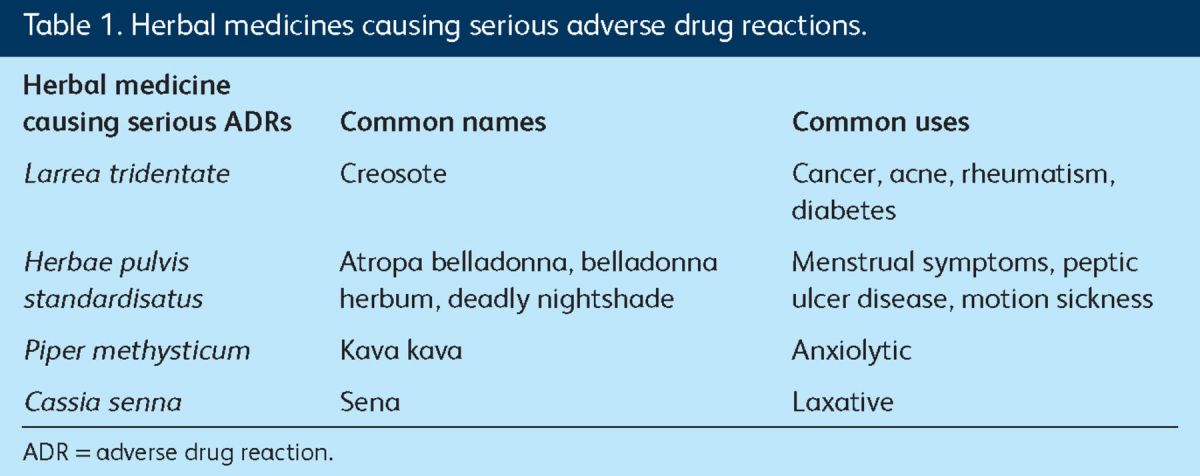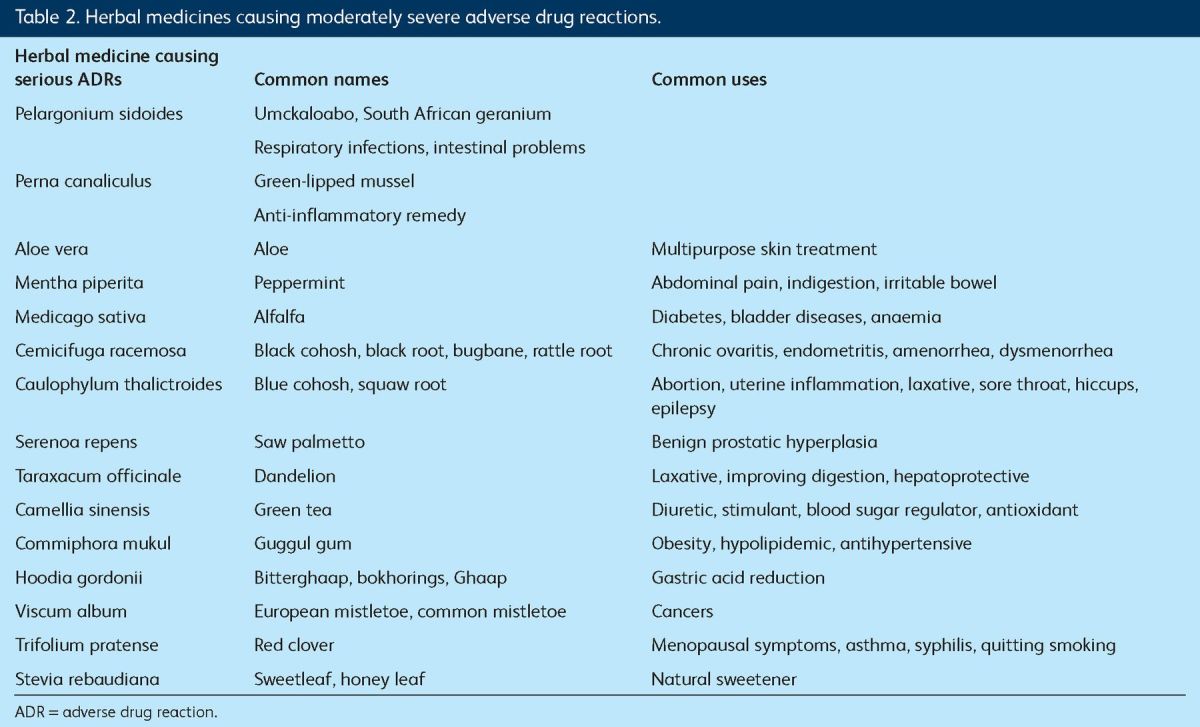Editor – We wite with reference to the manuscript ‘Adverse effects of herbal medicine: an overview of systematic reviews’ by Posadzki et al (Clin Med February 2013 pp 7–12), which reviews the severity of the adverse effects of herbal drugs.
It was gratifying to note that very few of the drugs, such as Cassia senna, Camellia sinensis, Commifora mukul and Stevia rebaudiana, which have serious or moderately severe side effects, are being used and prescribed by indigenous practitioners in India (Table 1). However, other herbal remedies, such as Lavandula angustifolia miller, Ginkgo biloba, Trigonella foenum-graecum, Gymnema sylvestre, Panax ginseng, Silybum marianum and Cinnamomum spp, which have mild side effects are also commonly used by Indian practitioners. This is a point for caution.
Table 1.
Herbal medicines causing serious adverse drug reactions.

Table 2.
Herbal medicines causing moderately severe adverse drug reactions.

In addition, possible herb-drug interactions have also been reported which are associated with increased risk of adverse drug reactions (ADRs), probably due to the induction or inhibition of cytochrome P450 isoenzymes. For example, Ginkgo (Ginkgo biloba) can cause spontaneous bleeding when combined with warfarin, and coma when combined with trazodone. Ginseng (Panax ginseng) lowers concentrations of warfarin (and alcohol), and induces mania and insomnia if used concurrently with phenelzine.1
More studies are needed to clarify and determine the clinical importance of herb-drug interactions. It is imperative for health professionals, patients, regulatory authorities and suppliers of herbal medicines to be cognisant of the possible ADRs and drug interactions caused when herbal medicines are used alone or co-administered with conventional drugs. Most herbal products on the market today have not been subjected to the approval process of the US Food and Drugs Association (FDA) and are not regulated for purity and potency. They may contain toxic substances or other contaminants which may increase the possibility of adverse effects.2 Hence rigorous scientific methodologies and clinical trials to ensure the quality and consistency of herbal products should be undertaken.
References
- 1.Izzo AA, Ernst E. Interactions between herbal medicines and prescribed drugs: a systematic review. Drugs 2001;61:2163–75. 10.2165/00003495-200161150-00002 [DOI] [PubMed] [Google Scholar]
- 2.Kew J, Morris C, Aihic A, et al. Arsenic and mercury intoxication due to Indian ethnic remedies. BMJ 1993;306:506–7. 10.1136/bmj.306.6876.506 [DOI] [PMC free article] [PubMed] [Google Scholar]


